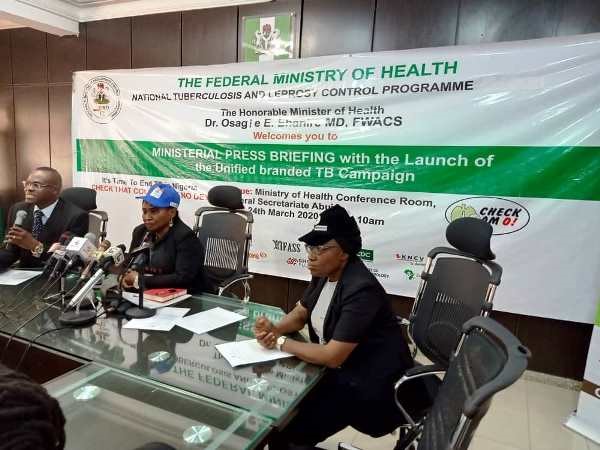Nigeria has the highest TB burden in Africa and ranks 6th globally
March 24, 2020
World AIDS Day 2020
December 1, 2020World TB Day 2020 is a continuation of joint efforts to keep TB high on the global and national agenda. Each day, nearly 4500 people lose their lives to TB and close to 30,000 people fall ill with this preventable and curable disease. Global efforts to combat TB have saved an estimated 58 million lives since the year 2000 and reduced the TB mortality rate by 42%. However, the emergence of drug-resistant TB poses a major health threat and could put at risk
the gains made in efforts to End TB.
This year’s theme of World TB Day 2020 “It’s time” is an action call on government, affected communities, civil society organizations, health-care providers, and national/international partners to unite forces under the banner “Find, Treat, All, End TB” to ensure no one is left behind.
It also puts the accent on the urgency to act on the commitments made by global leaders to scale up access to prevention and treatment; build accountability; ensure sufficient and sustainable financing including for research; promote an end to stigma and discrimination, and promote an equitable, rights-based and people-centered TB response.
24th March remains a day set aside to raise public awareness about the devastating health, social and economic consequences of TB, and to step up efforts to end the global TB epidemic. HIFASS in collaboration with the federal government and development partners to commemorated World Tuberculosis (TB) Day with a week-long planned series of activities which kicked-off on 17th with a Pre-press briefing and end on 24th March with Ministerial press briefing.
As part of the activities lined up for the world TB day 2020 celebration, TB Wellness on Wheels (WOW) truck, a mobile truck equipped with digital X-ray and GeneXpert serving as a one-stop shop was made available for TB screening and diagnosis screening in Wuse market and Karu PHC, Abuja. The testing was made free and people who tested positive to TB were linked to the nearest TB treatment facility.
At the Ministerial press briefing on 24th March, the National Coordinator of the National Tuberculosis and Leprosy Control Programme (NTBLCP), Dr. Adebola Lawanson, explained that the essence of the event is to bring into the consciousness of the public the havoc being wrecked by the disease called Tuberculosis.
According to her, “TB is a major public health problem in Nigeria. According to the 2019 Global TB report, Nigeria is ranked 1st in Africa and 6th globally amongst the 30 high TB burden countries and also among the 14 countries in the world with the triple high burden of TB, HIV associated TB and Drug resistant TB (DR-TB). Also, every hour 18 Nigerians die of TB, which is a disease that is preventable and curable.
“There is therefore, the need to scale up the level of awareness of TB among Nigerians, as only about 30 percent of Nigerians are aware of TB control and preventive methods.
“This year’s theme – ‘It is time to end TB in Nigeria,’ was carefully chosen and all efforts are directed towards achieving the Sustainable Development Goals (SDGs) of ending TB by 2030. WHO, in line with the SDGs, set a target of the 2030 to end the TB epidemic. In order to accelerate towards this goal, there have been a lot of controlled efforts that have been put in place. We have just 10 years towards the end of 2030, so a lot still needs to be done. And the slogan for this year is “check that cough, time no dey”.
The Minister of Health, Dr. Osagie Ehanire who was represented by the Director Public Health Doctor Ene Obong in his address, said that Nigeria is among the few countries to commence the use of child-friendly medicines for drug resistant DR-TB after development.
According to him, “In line with the END TB strategy, the Federal Ministry of Health (FMoH) with the support of partners has made some strides in the fight against TB in Nigeria. We have adopted new rapid diagnostic tools as well as child-friendly medicines for drug susceptible and drug resistant TB (DR-TB). It is noteworthy that Nigeria is among the few countries in the world that immediately commenced use of child-friendly medicines for DR-TB after development”.
“With regards to access, we have been able to expand diagnostic and treatment services for TB across the country by increasing the number TB microscopic centres and Gene Xpert machines from 32 in 2012 to 399 in 2020, as well as expansion of TB services to l2,254 health facilities (DOTS centers) in both private and public facilities in the country for Drug Susceptible TB.
“In addition, we have included TB services in the PHC minimum health care package to ensure the achievement of the universal access to care” he said.



